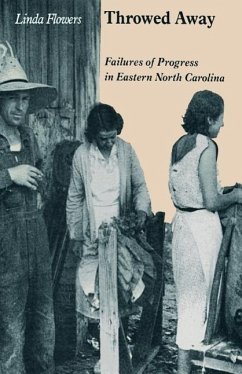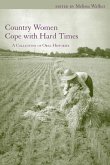Guided by memory and experience, reading and conversations, Linda Flowers offers a perceptive and often painful rendering of the changes industrialization has brought to her native region of eastern North Carolina since 1960. Entwined with her own narrative of coming of age in the rural South is the story of the undoing of the local way of life, brought about by the demise of tenant farming. Flowers charts the progress of the first generation to make the transition from farm to factory and records their hopes and dreams of achieving a better life. The sixties brought industrialization and sweeping changes in public schooling characterized by integration and large, consolidated school systems. Ten years later, it was apparent that neither the schools nor the factories had yet fulfilled the promise inherent in them. The children of that first generation to leave the farm struggled to find and keep even low-paying, dead-end jobs, their plight worsening with the rise of the service-oriented economy of the 1980s. As the author's interviews with students, teachers, and administrators reveal, educational innovations have not meant improvements for all, and white flight from public schools to private academies has sometimes sabotaged the goals of integration. Flowers finds a generation of displaced families on whom long hours of shift work, low wages, and abandoned hopes have taken their toll. The factories have come and somtimes gone in eastern North Carolina, leaving behind a place and its people "throwed away."
Hinweis: Dieser Artikel kann nur an eine deutsche Lieferadresse ausgeliefert werden.
Hinweis: Dieser Artikel kann nur an eine deutsche Lieferadresse ausgeliefert werden.








